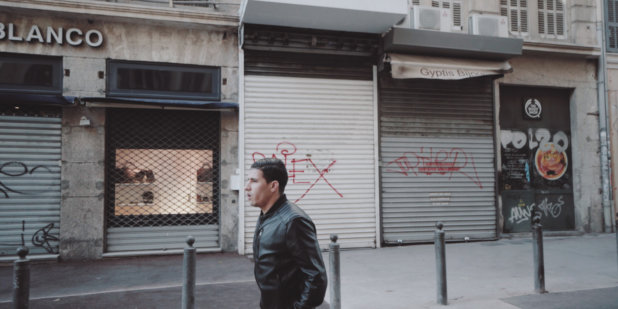- About
- Topics
- Picks
- Audio
- Story
- In-Depth
- Opinion
- News
- Donate
-
Signup for our newsletterOur Editors' Best Picks.Send
Read, Debate: Engage.

Floating on an ocean that has taken many lives before and will take many more still, it’s dark and cold, bodies rub against each other for warmth. A reality of repression and fear has been left behind. What the future has in store is filled with uncertainty.
The world of the refugee is tumultus, of that we are aware. Our newspapers are filled with stories of the personal; of individual narratives that desperately strive to reignite an empathy long lost, ever since the terms of the refugee, the migrant, the illegal worker and the many other unclassified statuses in between have become engraved in our reasoning as one thing, and one thing only.
But what would a migrant – legal or otherwise – be if she wasn’t what we recognise this position to be?
The bureaucratic status of the ‘countryless’ has produced individuals – people with histories and families and memories – who have been forced to think of themselves as victims in need of ‘our’ help.
I close my eyes and breathe deeply, slowing my heart rate and injecting a sense of another reality into my imagined surrounding – or trying to at least. You see, I’m in search of ways to experience how imagination can shift my perception of what’s real around me. I’m trying to examine how the application of imagination can help to create change – not just interpersonal, but social or even political.
Imagination is so often sectioned into the realm of creativity, of the ethereal, rather than the rational – where politics, and social policies, and international relations reside comfortably all at once. But it’s becoming increasingly apparent that imagination not bureaucracy will restore the lost dignity of the displaced. In the realm of science, this approach is already underway, with medical pioneers turning to science fiction writers to help them imagine what medicine might look like in 100 years. It is precisely the combination of active imagination, together with the distance of turning to professions outside of the field that allow fresh ideas to spur. Perhaps the political realm could learn a thing or two from the universe of fiction, too.
Over the last few years, the importance of imagination for change has begun to gain traction – sprouting like mushrooms across the fields of creative (and innovative) means for positive impact. The United Nations’ development of its own virtual reality platform (UNVR) – with numerous stories uploaded onto its site regularly – has opened a door into multi sensorial experiences of the other. From refugee camps in Syria to crossing the Mediterranean sea by boat, virtual reality is a powerful tool to evoke empathy where it’s most desperately needed. This year’s Sheffield Doc/Fest commission was also given to the Future Aleppo project, a virtual reality documentary based on the imagined reconstruction of Aleppo, intricately assembled out of paper by 7th grade Muhammad, who has been forced to leave his country, his childhood and his memories of the neighbourhood he calls home.
But it goes further than virtual reality, in fact this playfulness is simply the first of many steps:
It is a way of showing that there could be another way, another reality, another image of the refugee, a status other than illegal, another city built on top of a destroyed one.
What follows are projects that have been based on ‘the impossible’. Finland is now introducing blockchain bank accounts to its 41,241 new citizens, mostly migrants and asylum seekers from Iraq, Afghanistan, Syria, Somalia and Eritrea. This new technology allows those without documents – a common issue that slows down integration processes and limits the migrant’s accessibility to the country’s systems – to open bank accounts that use blockchain instead of a centralised bank. The simple gesture of a debit card is a crucial first step to rehumanising individuals.
By allowing creative innovation to replace outdated bureaucracy, a vessel for new life has been birthed; new thought, newly found dignity and legitimation.
By simply committing to the liberation that is inherent to imagination; closing our eyes and succumbing to the possibilities beyond what is our reality right now, worlds could be shifted around. With the help of imagination those who have been forced to live the life of the refugee can become empowered once again. Individualism can be restored – even if for just a split second – and that is paramount for rebuilding broken communities. Because as much as we in Europe and across the world are in need of shifting our own perception of who the economic or political migrant is, the most powerful tools we can invest in are those which shift how the displaced see and acknowledges themselves. Only when the labels of the refugee, the asylum seeker and the migrant are unlinked from their stigmatisation of shame and victimhood can true integration begin to take place.
FLOATING by Klara Plainer, Franzis Walther, Noaz Deshe
Filmed by Noaz Deshe in the Mediterranean Sea off the Libyan coast and first published with FAIRPLANET's Developing Story Saving Lives.